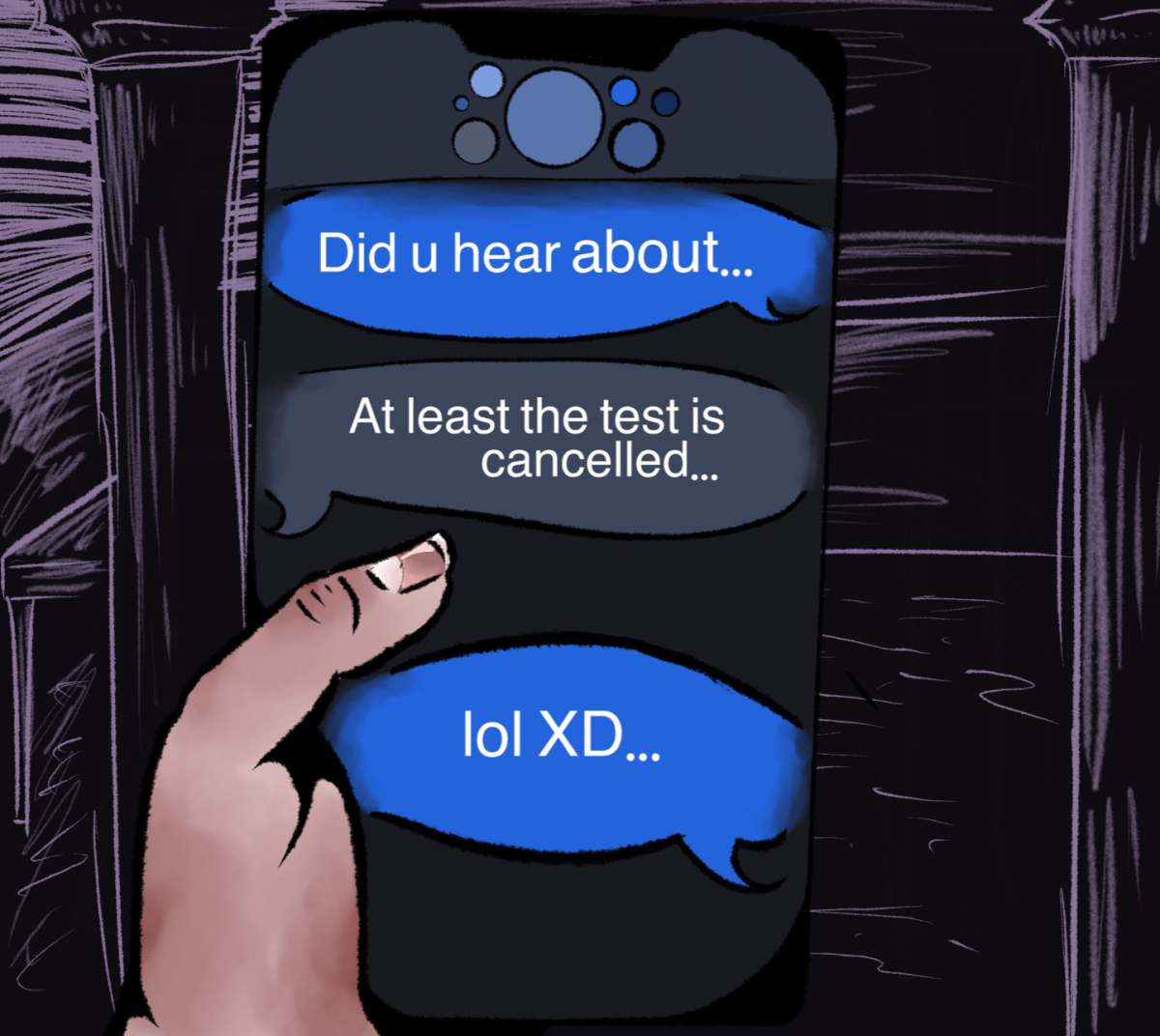Do you juul?
Vaping has started affecting young lives in unforeseen ways. It’s time we try to handle the problem differently.
With every generation (think Baby Boomers, Gen X, Millenials), there’s always something that makes each particular group stick out: think rock and roll, peace and love, vinyl records, polaroids, timeless films, grunge music… The list of cultural markers goes on.
The latest generation (2000 to present day), known as “Gen Z,” is still looking for their mark. Our student body is part of this technologically advanced era, but sometimes when people think of us, we aren’t always thought of in the most positive light; some see us only as nicotine addicts, phone-and-tech crazy, stuck up rich kids.
But that, in fact, is a super simplified viewpoint of us. We are part of something much bigger. We are computer programmers, bloggers, social media pros, video-makers and so much more. We want to leave a good trademark.
But there is one negative issue and stereotype that we need to do something about: vaping. And we’re not doing enough.
In just the past few years, illegal teen vaping has become a big issue both at Saint Stephen’s and around the nation generally.
Since 2017, teen vaping has doubled and up to 1 in 4 high school seniors use e-cigarettes regularly, according to the National Institute on Drug Abuse.
The big issue at hand is, are these things harmful? And importantly, what is something we can actually do about the issue that would be helpful? But we’ll get to that later.
According to a recent piece in the New York Times, a young, underage 17-year old boy had a lung transplant due to vaping nicotine and THC (THC is the component of marijuana that makes a person high).
His case is just one of many due to vaping-related illnesses. As of November 5th, vape-related illnesses have hospitalized 2,051 people and killed 40.
Just recently, a man from California died from vaping related illnesses. Although the man who died was an adult, and he died from a THC (different from nicotine) based product, there are still more and more cases of illness coming out as the result of the process of vaping.
Another real question is why has there been such a sudden increase? Since 1963, vapes have been a popular invention but now all of a sudden they’re a big deal?
The biggest impact on teen vaping popularity has come from the notorious company “Juul.” Appealing to most because of its different flavored pods, teens have become addicted.
Juul was created to help of-age adults quit smoking cigarettes but sadly, teens have gotten hold of this product and as a result, they go through at least one pod or more a day. Little do they know, one pod is equivalent to a full pack of cigarettes in terms of nicotine intake, and since pods come in packs of four, students are basically buying four packs of cigarettes when they pick up a pack.
In the past few months, Juul has stopped selling it’s attractive fruity flavors, such as mango and fruit medley, because of the FDA’s refusal to approve their pods. Until the number of teen vapers decreases, the FDA is keeping a close eye on the Juul Company.
Unfortunately, more and more under-age students have jumped on this trend and in response adults and other authority figures are looking to reduce the amount of vaping that goes on daily.
So, what should we do about it?
It’s difficult to go about convincing just about anyone to quit something they’re addicted to, especially when they’re addicted to chemicals that cause dependency.
Rather than describing to a “nic-addict” the dangers of vaping (something they probably already know), it can be more effective to refrain from giving lectures about the risks.
In this case, rather than explaining, it’s smarter to find an alternative way to persuade underage addicts of better and healthier lifestyles.
Sometimes peer pressure, for the right reasons, can work. What does this mean? Peer pressure is the influence that friends can have on each other. Moreover, where there’s a friend group that has a vaper, showing that person how gross vaping is through judgment and disappointment can sway them to stop.
Guilt is a very powerful human emotion and sometimes very helpful when influencing someone not to do something. Showing increased disgust and disappointment towards an addicted friend can be what they needed to stop. ![]() Loading ...
Loading ...
Try reverse psychology. Telling a friend to continue to vape and see what it does in the future, another form of “guilt-tripping,” could really make them think that maybe it’s time to quit.
It’s pretty difficult to make someone quit their lifestyle of vaping but it could be the deciding factor in what keeps them alive. Juuls are shiny and small, an easily concealed and clean product that appeals to most, but these handheld devices can potentially be doing tons of damage to the human body.
The factors and health issues that could come from this product are unknown. There is no question that unhealthy chemicals are being put into the body. Who knows how those chemicals will affect you deep into the future…

Evanthia is a third-year Creative Director on The Gauntlet. She is a senior here at Saint Stephen's and likes drawing, playing Genshin Impact, and hanging...














































